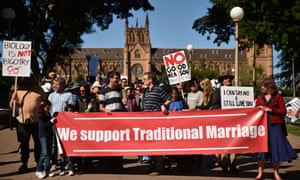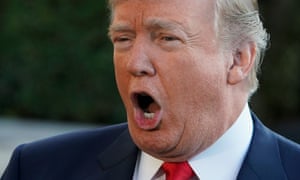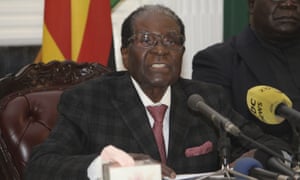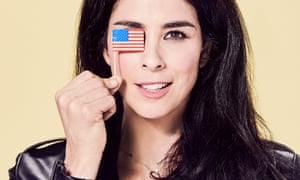The same-sex marriage survey revealed a deep divide between Sydney’s western and eastern electorates. The nation and its states recorded an overwhelming yes and only 17 of 150 electorates voted no, but 12 of those were in Sydney’s west. The strongest no vote came from the electorate of Blaxland, where only 26% of people wanted marriage equality. Five other electorates in the area had less than 40% support.
These electorates are some of the most ethnically and culturally diverse in Australia, with high immigrant populations, and that factor has been strongly linked to the no vote.
But the factor that correlated most strongly with a no vote was religious affiliation, not overseas birth. It had a correlation of -0.8, implying a close to 1:1 relationship. The following graphs show the percentage of yes voters in every electorate in the postal survey, mapped against census data for each electorate.
Survey votes shown against identification as religious
Being born overseas had only a slightly positive relationship with voting no.
... against overseas birth
Somewhat surprisingly, household income was only slightly correlated with a yes vote.
... against median household income
And higher education levels had a slightly, but not remarkably positive relationship with voting yes.
... against bachelor’s degree as highest education level
... against graduate diploma as highest level of education
... against postgraduate qualification
The ABC’s chief political scientist, Antony Green, has highlighted that same-sex marriage did not follow the usual lines of political division. “Gay marriage doesn’t fit into the Australian political structure very well because it’s not a class-based issue,” he said.
A closer look at each religion shows that Islam was the strongest indicator of a no vote, but still a weaker indicator than religion per se.
... against Islam
After Islam, Christianity was the religion most strongly correlated with a no vote.
... against Christianity
Of the Christian religions (which are disaggregated in census data), Oriental Orthodox – common in north-east Africa and the middle east – and Catholics were most strongly associated with a no vote. Both were more strongly correlated with a no vote than Christians in general, and than Hinduism, the third most strongly correlated religion. (Only one religion, Judaism, had a positive correlation with a yes vote.)
There is no simple explanation for the strong relationship between religion and no voting. Attempts to frame a particular religious group as inherently homophobic ignore complex social, cultural and economic factors that drive voting decisions.
Carrie Hou, who campaigned for the yes vote in western Sydney, has said lack of access to trusted English-language news and campaign materials played a significant role in persuading people against marriage equality: “The no campaign pumped out bilingual material and used fearful messaging that actually connected with the migrant community,” she wrote on Facebook.
She said the yes messaging was targeted at a white, middle class audience and did not resonate with socially conservative immigrant communities: “Love is love ... is confusing and not translatable.”
Writing on the Conversation, sociologist Andrew Jakubowicz from the University of Technology, Sydney, said migrant communities in the west had little information directly available from sources they would trust, or to which they have easy access. Often their information was mediated primarily through religious institutions, he said.





